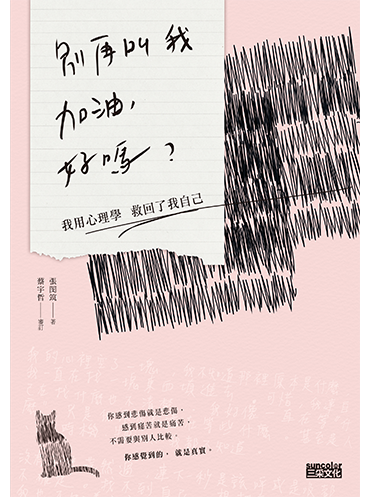Before depression was widely understood as a disease, sufferers had to live their lives fighting a shadow that only they knew existed. Yet even today, popular understanding lags far behind. One psychology student’s battle with her own depression extends an affirming hand to those in need.
Depression. Even as more people have come to recognize it as a genuine disease like any other, public awareness and understanding for those who suffer from it lags far behind where it needs to be. And while there are already self-help books that talk about it, none can engage it from multiple sides at once the way that Chang Min-Chu does here.
Chang Min-Chu’s story is one of dangerous isolation and persistent self-maintenance. A painful struggle with depression during high school motivated her to learn all she could about the condition, and later to change her major to psychology halfway through college. She has taken a lifelong battle with an invisible affliction to the next level by making it the focus of her professional attention.
In this way, Stop Telling Me It’ll Be All Right is a conversation between two sides of one person – the aspiring scientist on one side, and the afflicted young woman on the other. The two voices enrich and balance each other, showing us both the immediate feeling of the depressed individual and the informed perspective of the psychology professional. Thus the book qualifies as self-help on two distinct levels, as it aids the reader by depicting one person’s intervention in her own inner world.
Sufferers know that depression is not a disease you “cure,” but one you learn to live with – a skill that is much more easily acquired with help from others. Those especially who have been forced by helpless parents or apathetic school staff to fight alone will find in this book an unwavering ally, a true professional who sits beside, not across from them.
